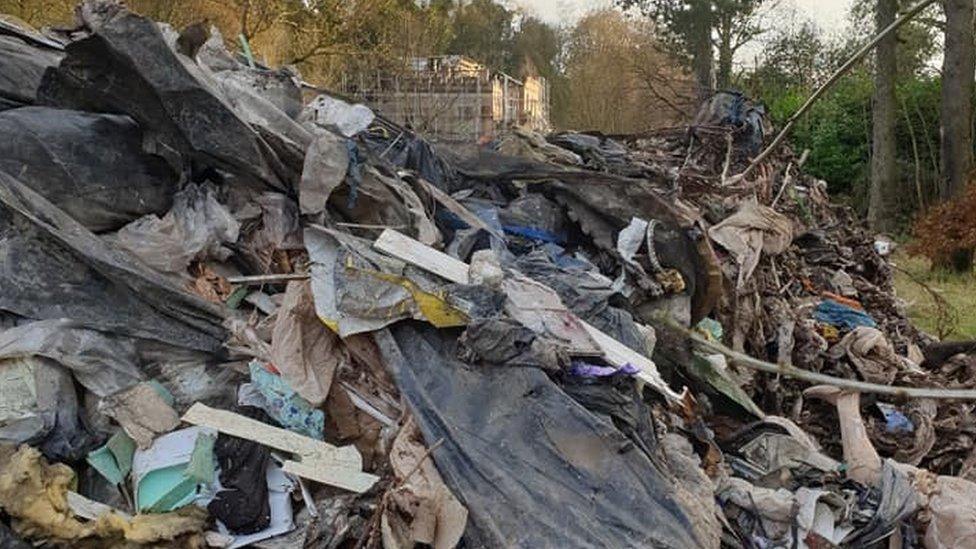'Fake firm' dumped illegal waste in Staffordshire warehouse
- Published
The dumped waste
Thousands of tonnes of illegal waste have been dumped in a warehouse by a company the landowners thought was a legitimate business.
The fake firm told owners of the Staffordshire unit it would be used for a different purpose but instead left more than 5,000 tonnes of waste.
The Environment Agency said the waste was dumped under "false pretences".
BBC research has found the number of incidents of large-scale fly-tipping has more than doubled since 2012.
Organised criminal gangs are being blamed for the rise across the UK, which has cost local authorities almost £60m since 2012. Experts say it is because penalties are small, but profits can be huge.
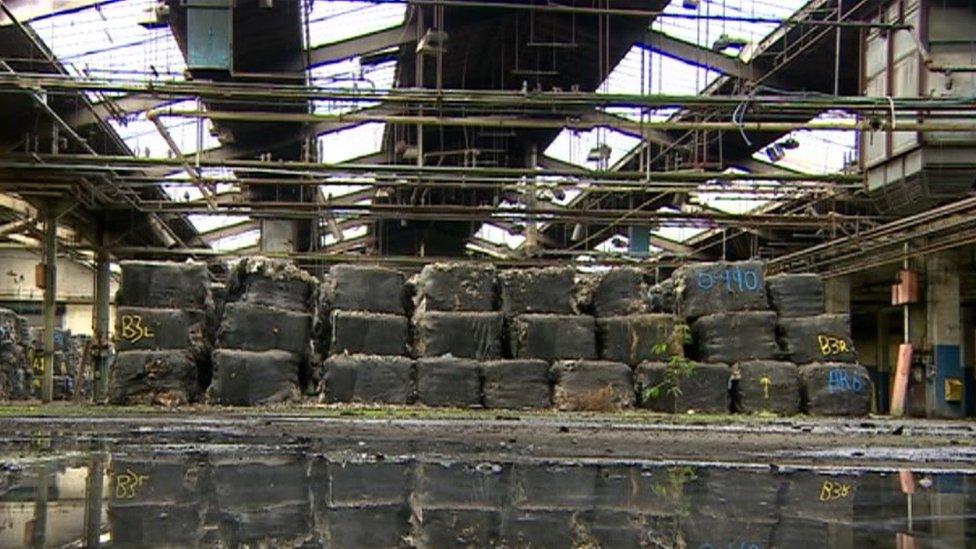
The owners of the unit have already had to pay to have the bales moved to avoid the risk of the waste igniting
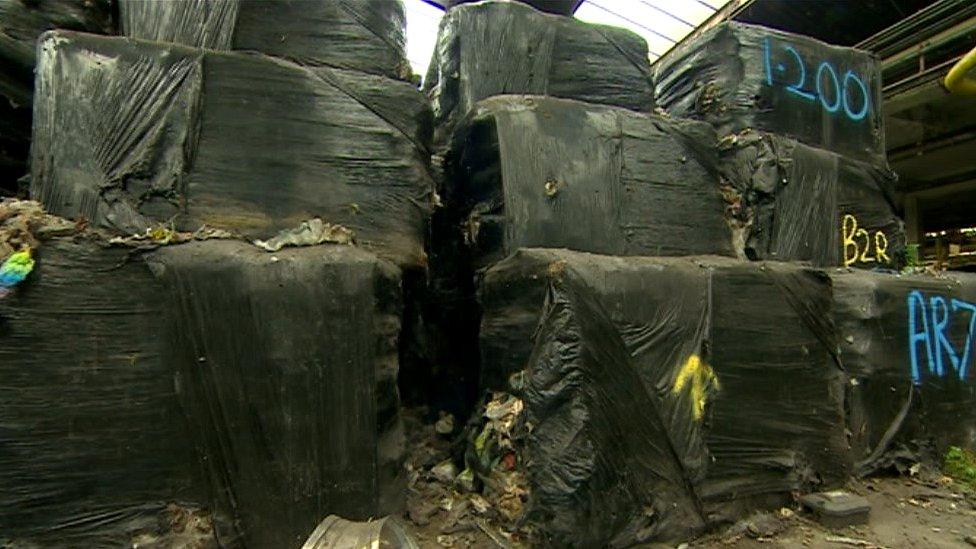
About half as much waste was dumped in another warehouse in Staffordshire which cost £400,000 to clean up, the agency said.
Marc Lidderth from the Environment Agency, which is investigating the Staffordshire case, said: "The landowners obviously rented this warehouse out to the people that dumped this waste here under false pretences.
"The people that came in here told the landowners they were going to be doing something completely different, and what's basically ended up here is an operation where they have dumped 5,500 tonnes of waste."
About half as much waste was dumped in another warehouse in the county which cost £400,000 to clean up, the agency said.

Analysis: David Gregory-Kumar, BBC Midlands Today science and environment correspondent
From the outside it's just another warehouse, but inside the biggest dump of fly-tipped rubbish I've ever seen in my career.
The owners believed they were renting their warehouse to a legitimate business, by the time they discovered what had happened almost a fifth of the space was filled with hundreds of one-tonne bales of rubbish.
Already the owners have had to pay for the bales to be moved and stacked into smaller piles. Left as it was there's a strong chance of the waste igniting and everything going up in flames.
It's quite likely the owners will have to pay for final clear-up which could cost them nearly a million pounds.
From the outside you wouldn't know this warehouse was part of what our research says is a growing environmental crime wave.

BBC research found there were 36,263 large-scale incidents recorded by Defra last year, compared to 16,702 in 2012-13.
Fly-tipping is a criminal offence punishable by a fine of up to £50,000 or 12 months' imprisonment if convicted in a magistrates' court.
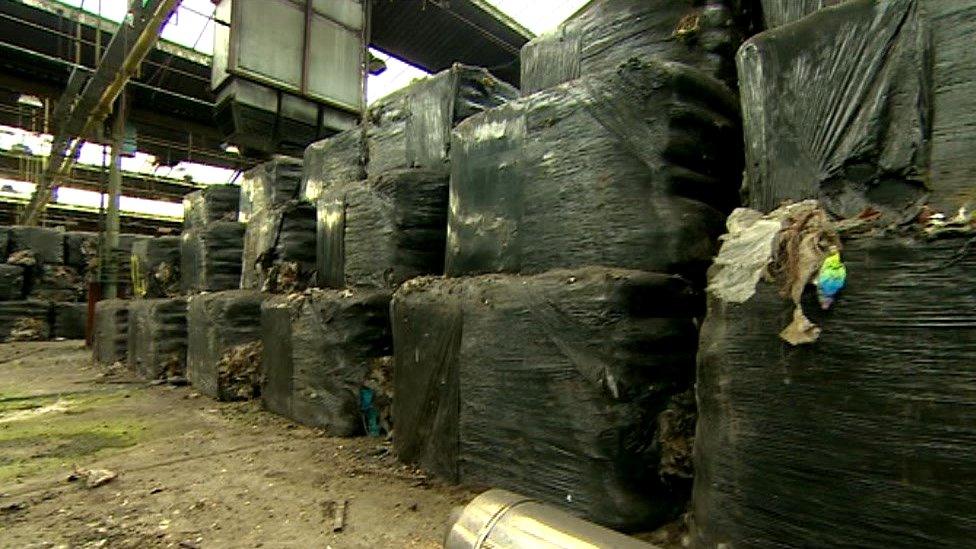
BBC research shows the number large-scale fly-tipping incidents has more than doubled since 2012
The growth in the number of incidents has led the agency to share intelligence with the police, HMRC and the National Crime Agency.
"It is involving career criminals and it's becoming very complex," Mr Lidderth said.
Julia Mulligan, chair of the National Rural Crime Network, said as well as the financial cost, the crimes "make people feel less safe and blight our communities".

Follow BBC West Midlands on Facebook, external, on Twitter, external, and sign up for local news updates direct to your phone, external.
- Published13 February 2020
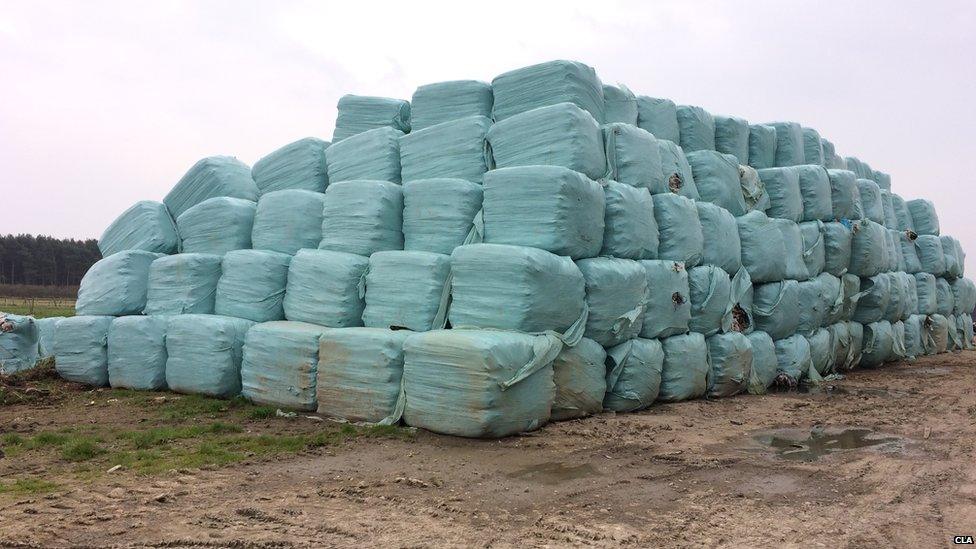
- Published9 December 2019
